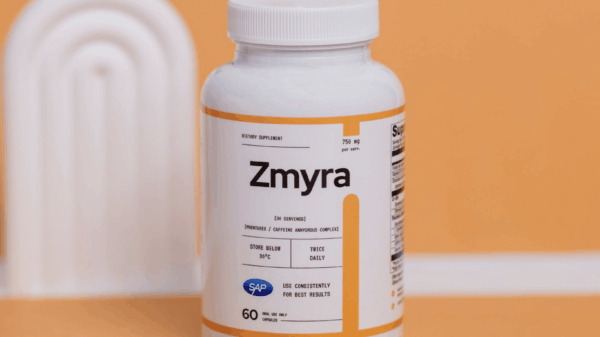Aging is a journey everyone experiences, yet it can pose significant challenges for our cardiovascular health. As we grow older, our bodies undergo changes that can affect our physical well-being, particularly impacting our heart. Cardiovascular disease continues to be the foremost cause of death worldwide, with aging recognized as the primary risk factor.
So, what occurs in our hearts as we age? This is linked to what scientists refer to as the “nine hallmarks of aging”—essentially, the key cellular and molecular alterations that drive the aging process. By grasping these hallmarks, we can empower ourselves to take proactive measures to safeguard our heart health.
As we explore the nine hallmarks of aging and how they affect our hearts, consider this knowledge your toolkit—a means to build strength and resilience rather than succumbing to the decline often associated with growing older.
Understanding the Nine Hallmarks of Aging
1. Genomic Instability: With each year, our DNA incurs damage from various environmental factors and the natural wear of life. This instability can hinder heart cells’ ability to repair and regenerate, heightening the risk of heart disease or stroke, which can be disheartening for anyone.
2. Telomere Attrition: You may have heard of telomeres—those vital caps at the ends of our chromosomes that safeguard our DNA. As we age, these telomeres shorten, which has been linked to heart conditions such as heart failure and high blood pressure. It’s akin to a clock speeding up, where our cardiovascular resilience diminishes along the way.
3. Epigenetic Alterations: Our genes are dynamic and express differently as we age. Unfortunately, this can lead to inflammatory processes that compromise heart function and contribute to atherogenesis. It serves as a reminder that our bodies engage in a complex dance of genetic expression, with time often bringing unfavorable changes.
4. Loss of Proteostasis: Proteins must fold correctly to function effectively. As we age, improper folding can lead to the accumulation of misfolded proteins, placing stress on heart cells and leading to conditions like cardiac amyloidosis. Envision a factory where delays in production threaten the entire system’s effectiveness without timely repairs.
5. Deregulated Nutrient Sensing: Aging negatively impacts how we metabolize nutrients. This decline can foster insulin resistance and various metabolic disorders, increasing risks for conditions like obesity, diabetes, and heart problems. Just when it feels like we’ve mastered our dietary choices, our bodies can surprise us.
6. Mitochondrial Dysfunction: Mitochondria, often referred to as our cells’ “powerhouses,” lose efficiency with age. This decline can result in weakened heart muscles and heightened oxidative stress. Imagine running on a battery that’s gradually losing its power; eventually, that energy diminishes.
7. Cellular Senescence: Often called “zombie cells,” senescent cells stop dividing but release inflammatory signals that can accumulate over time. This contributes to arterial stiffness and heart disease. They serve as a reminder that some unwanted elements can linger longer than anticipated.
8. Stem Cell Exhaustion: Our body’s stem cells are essential for rejuvenating and repairing damaged tissues. Yet, as we age, this regenerative capacity wanes, especially in the heart. This slower recovery leaves us more susceptible to cardiovascular issues.
9. Altered Intercellular Communication: Aging hampers intercellular communication, resulting in chronic inflammation—often termed “inflammaging.” This puts extra stress on heart tissue, increasing the likelihood of hypertension and heart attacks. It’s like a malfunctioning communication network where important messages are lost, leading to disorder.
Taking Action for Heart Health
While aging is inevitable, the decline in cardiovascular health need not be our destiny. Thanks to extensive research and emerging longevity strategies, we can take practical steps to maintain strong and resilient hearts.
Test Your Heart Health Early: Understanding your health challenges is crucial. A Core Longevity Panel offers a comprehensive view of your cardiovascular condition through advanced blood testing. Analyzing vital biomarkers such as inflammation, metabolic function, and cholesterol levels allows for risk identification before symptoms appear. Think of it as a preemptive car check-up; your heart merits the same consideration.
Combat Senescent Cells with Rapamycin: The accumulation of senescent cells can trigger inflammation. However, Rapamycin, an mTOR inhibitor, has shown potential in suppressing these problematic cells, which might help reverse age-related heart dysfunction. Consider it a sophisticated defense against the debris that builds in your cardiovascular system.
Enhance Mitochondrial Function with NAD+ Injections: Mitochondrial dysfunction is linked to weakened heart muscles, but treatments like NAD+ injections can help boost energy production and cellular repair. Research supports this approach, indicating enhancements in mitochondrial function and overall heart health.
Manage Inflammation with Low-Dose Naltrexone (LDN): Chronic inflammation can undermine heart health. Small doses of LDN exhibit notable anti-inflammatory properties. By effectively engaging with your immune system, LDN can protect heart tissue from the damaging effects of time and excess inflammation.
Monitor and Optimize Metabolic Health: Maintaining good metabolic health is essential for cardiovascular well-being. Consider methods like intermittent fasting to support insulin sensitivity, along with medications like Metformin and its natural counterpart, Berberine, which both hold potential for promoting better heart health.
Personalized Medicine for Heart Health: In our tech-driven era, precision medicine is revolutionizing our approach to heart health. By utilizing genetic testing and wearables, you gain real-time insights into your cardiovascular condition. This visibility allows you to navigate your health journey more effectively.
The Future is Bright for Heart Health and Longevity
The conversation around aging and heart disease is evolving, thanks to advancements in longevity research. You need not fall victim to the inevitable decline of time. By understanding the nine hallmarks of aging and their effects on your heart, you can take informed, proactive steps toward protecting your cardiovascular health.
Through early testing, innovative approaches to cellular rejuvenation, inflammation management, and mitochondrial support, not only can you extend your lifespan, but also enhance the quality of those years. Let’s ensure that the extra years are filled with energy, vitality, and a heart that continues to flourish. Remember, you have more control over your heart health than you may realize—let’s embrace that potential together.



























